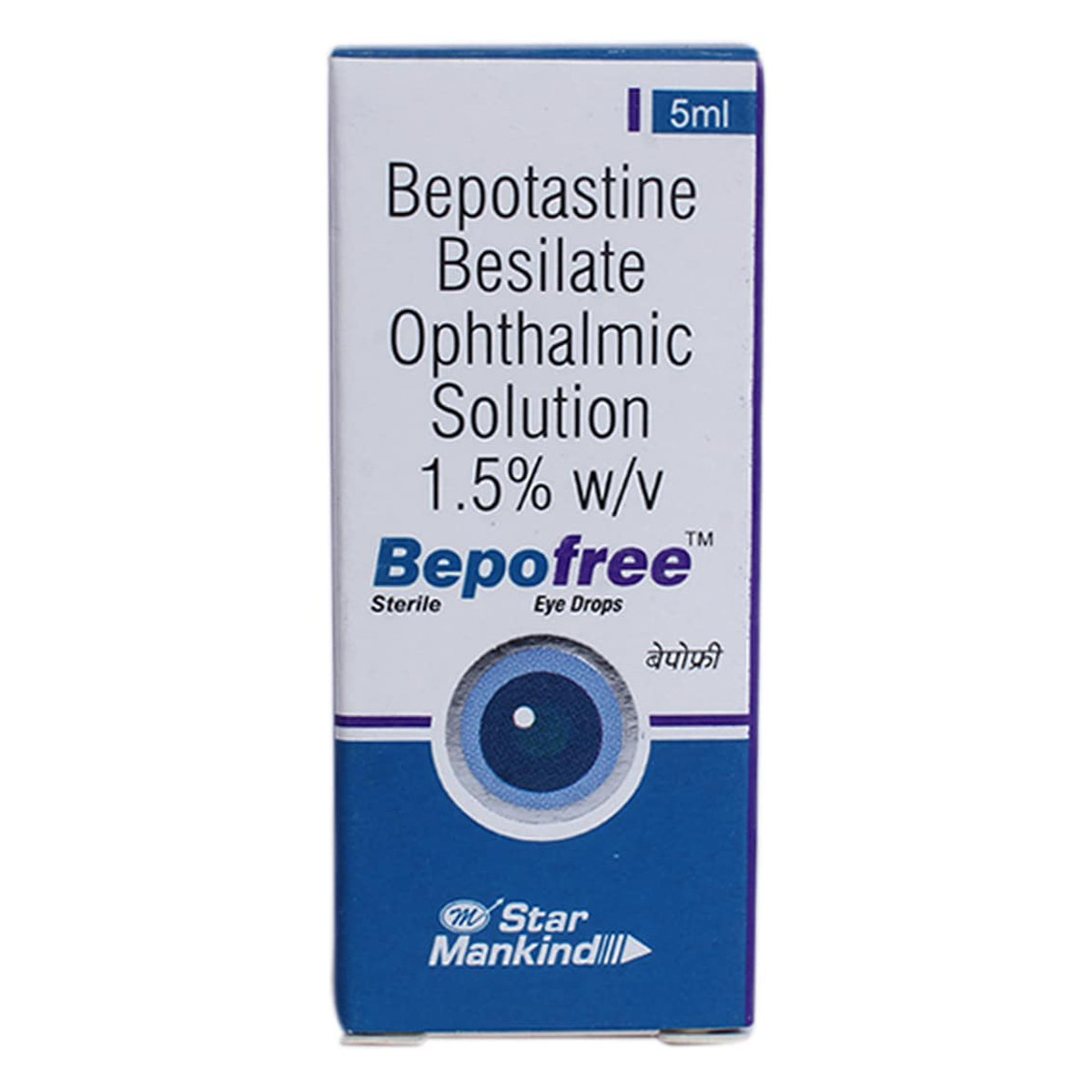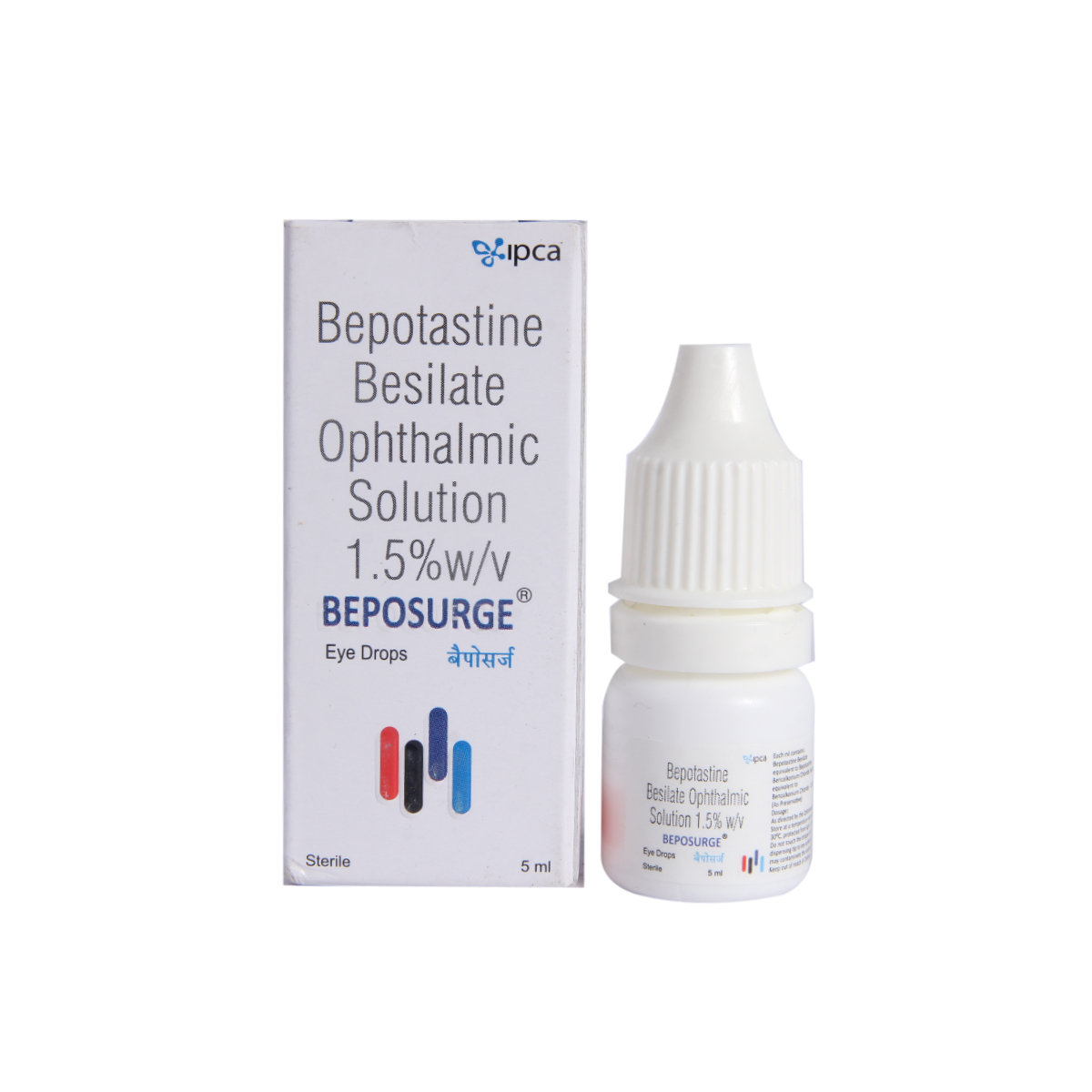Bepotastine Besilate
About Bepotastine Besilate
Bepotastine Besilate belongs to a class of antihistamines primarily used to treat itching/irritation of the eyes due to allergic conjunctivitis. Allergic conjunctivitis is a common eye inflammation caused by an allergic reaction from allergens, especially during hay fever season. It is the body’s reaction against substances it considers potentially harmful.
Bepotastine Besilate contains Bepotastine besilate. It works by blocking the release of histamine, which is responsible for allergic symptoms.
Bepotastine Besilate may cause irritation in the eyes, headache, and swelling inside the nose and throat in some cases. Most of these side effects of Bepotastine Besilate are temporary, do not require medical attention, and gradually resolve over time. However, if the side effects are persistent, reach out to your doctor.
Do not use Bepotastine Besilate if you are allergic to any of its ingredients. Do not use any other eye medication along with Bepotastine Besilate without talking to your doctor. Before using Bepotastine Besilate, inform your doctor if you have or ever had glaucoma (increased eye pressure), any other eye problem, or if you are pregnant or breastfeeding.
Uses of Bepotastine Besilate
Medicinal Benefits
Bepotastine Besilate contains Bepotastine besilate, a second-generation antihistamine. It is used to treat itching of the eyes due to allergies. It works by inhibiting the natural substance (histamine) responsible for causing allergic symptoms.
Directions for Use
Storage
Side Effects of Bepotastine Besilate
- Mild taste in the mouth
- Headache
- Eye irritation
- Sore throat
Drug Warnings
Inform your doctor if you are allergic to any of the ingredients in Bepotastine Besilate, other prescription and non-prescription medications, vitamins, nutritional supplements, and herbal products you are taking. Please do not stop taking Bepotastine Besilate suddenly, as it might worsen your symptoms. To avoid any contamination, avoid touching the tip of the dropper. If you develop/notice a new eye infection or injury, inform your doctor.
Drug Interactions
Drug-Drug Interaction: No interaction was established/found.
Drug-Food Interaction: No interaction was established/found.
Drug-Disease Interaction: No interaction was established/found.
Drug-Drug Interactions Checker List:
Safety Advice

Alcohol
cautionAvoid alcoholic beverages with Bepotastine Besilate as they can make you dehydrated and affect eye pressure.

Pregnancy
cautionThere are no adequate and well-controlled studies on pregnant women. Bepotastine Besilate should be used during pregnancy only if prescribed by a doctor.

Breast Feeding
cautionThere are no adequate and well-controlled studies on breastfeeding women. Caution should be exercised, and it is advisable to consult a doctor before using.

Driving
cautionBepotastine Besilate can cause blurry vision. So, driving or operating machinery should not be done.

Liver
safe if prescribedNo interaction was found. Please consult your doctor for further advice.

Kidney
safe if prescribedNo interaction was found. Please consult your doctor for further advice.

Children
cautionIt is well tolerated in children when used as advised by the child specialist.
Habit Forming
Diet & Lifestyle Advise
- Visit an optician regularly.
- Try to include heart-healthy omega-3 fatty acid-containing food/drinks in your daily diet. You can also use low-fat cooking oil like olive oil, soybean oil, canola oil, and coconut oil.
- Regular moderate exercise and appropriate rest are important for a speedy recovery.
- Fruits and vegetables, which contain vitamins A and C, help improve vision.
- Include dairy foods in your diet that may improve eye health.
- Indulge yourself in aerobic exercise that relaxes eye muscles and the pressure built inside them.
- Consume more leafy vegetables, including cabbage, kale, and spinach, that improve eye health and lower the risk of glaucoma.
Special Advise
Bepotastine Besilate is intended for use in the eye only. Wash your hands before and after instilling Bepotastine Besilate.
Patients Concern
Disease/Condition Glossary
Allergic conjunctivitis: Allergic conjunctivitis is a common eye inflammation when the eyes come into contact with an allergen. Symptoms such as itching and redness of the eyes can occur because the overreacting immune system causes the body to release histamine and other active substances. As a result, the blood vessels dilate or expand, irritating the nerve endings.
FAQs
Bepotastine Besilate belongs to a class of medicines known as an antihistamine. It works by inhibiting the natural substance (histamine) action responsible for causing allergic symptoms, thereby reducing allergy symptoms.
No, Bepotastine Besilate should be taken in the dose and duration as advised by the doctor. If you take it in more than the recommended dose, it might cause serious side effects. If you think your symptoms are not improving, please consult your doctor.
If you miss a dose of Bepotastine Besilate, take the missed dose as soon as you remember it. However, if it's almost time for the next dose, skip the missed dose and take the scheduled dose. Do not take a double dose to make up for a missed one.
Bepotastine Besilate may cause blurred vision. However, this effect will be temporarily seen after instilling Bepotastine Besilate and gradually wear off. Do not drive until you can see clearly.
No, Bepotastine Besilate should not be used simultaneously with other eye medications. At least, a gap of 10-15 minutes should be there between using two eye medications.






